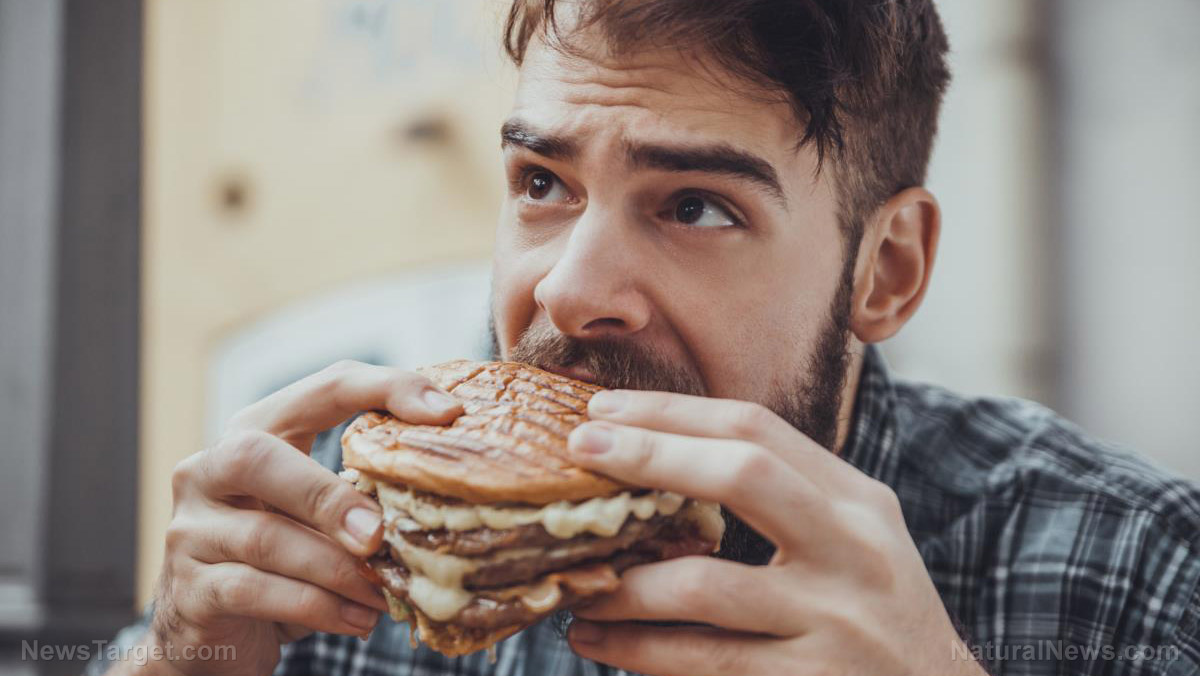The typical Western high-fat diet causes cancer to metastasize faster
07/17/2018 / By RJ Jhonson

Men who want to significantly reduce their risk of dying from prostate cancer could start by skipping burgers, French fries, or fatty food altogether. Researchers from the Cancer Center at Beth Israel Deaconess Medical Center (BIDMC) published a study in two journals, Nature Genetics and Nature Communications, and have reported that the typical Western high-fat diet promotes the metastasis of prostate cancer.
Prostate cancer is the second leading cause of death among American males, says the American Cancer Society, only lagging behind lung cancer. Remarkably enough, it is also among the most survivable of all types of cancer, with many patients dying with it, but not because of it. Its 15-year relative survival rate is 96 percent, an incredible figure considering it’s technically a deadly disease.
At the most basic level, cancer is really just a bunch of abnormal cells. It becomes deadly when cancer cells spread in a process called metastasis. Once cancer has metastasized, it wreaks havoc and damages other organs in the body. It is at this point that most sufferers die from the disease.
Metastatic prostate cancer is almost always deadly. But while other types of cancer almost readily metastasize, prostate cancer does not. In many cases, it stays well within the prostate where it slowly develops – so slowly that some patients die before it even metastasizes.
Taking prostate cancer’s tendency for “indolence,” the researchers from BIDMC sought to uncover why the tumor does spread at times. They discovered that a specific tumor suppressor gene called PTEN plays a considerable role in keeping prostate cancer at bay. Its partial loss accounts for about 70 percent of primary state tumors, while a complete loss of the gene is linked to metastasis.

Animal studies, however, suggested that even the complete absence of PTEN is not enough to trigger the progression of prostate cancer. PML, another tumor suppressor gene, tended to be a feature in localized or non-metastatic tumors but was not present in about one-third of metastatic tumors. Both PML and PTEN were absent in 20 percent of metastatic prostate tumors.
They then compared the localized tumors that had no PTEN and the metastatic tumors lacking both PTEN and PML. They discovered that metastatic tumors were producing lipids or fats in very large amounts. (Related: Prostate cancer risk linked to a diet high in red and processed meats.)
“It was as though we’d found the tumors’ lipogenic, or fat production, switch,” said Pier Paolo Pandolfi, M.D., Ph.D., Director of the Cancer Center and Cancer Research Institute at BIDMC and senior author of the study.
As if this wasn’t enough, the researchers made another discovery that reinforced the roles of fat in metastasis. To make experiments as close to humans as possible, scientists use animal models, usually rats. Although successful most of the time, there are certain diseases that cannot be modeled in rats, and so cannot be tested. One of these diseases is prostate cancer. Whether it had to do with differences in body type or composition, scientists had no idea – at least until the BIDMC researchers realized something.
“I asked, ‘What do our mice eat?’” Pandolfi remembered wondering.
Their lab mice, it turned out, were eating a vegetable-based diet comparable to a low-fat vegetarian diet in human beings. When they changed the mice’s diet into something that was rich in saturated fats, much like what is in fries and cheeseburgers, the mice began developing metastatic tumors.
“Although it is widely postulated that a Western diet can promote prostate cancer progression, direct evidence supporting a strong association between dietary lipids and prostate cancer has been lacking,” said Ming Chen, Ph.D., a research fellow in Pandolfi’s laboratory and first author of the study.
“The data are tremendously actionable, and they surely will convince you to change your lifestyle,” Pandolfi added.
To learn more about prostate cancer, visit Cancer.news today.
Sources include:
Submit a correction >>
Tagged Under:
bad diets, bad nutrition, cancer, Diets, fats, high-fat diet, lipids, men's health, metastasis, obesity, poor eating habits, Prostate cancer, western diet
This article may contain statements that reflect the opinion of the author




















